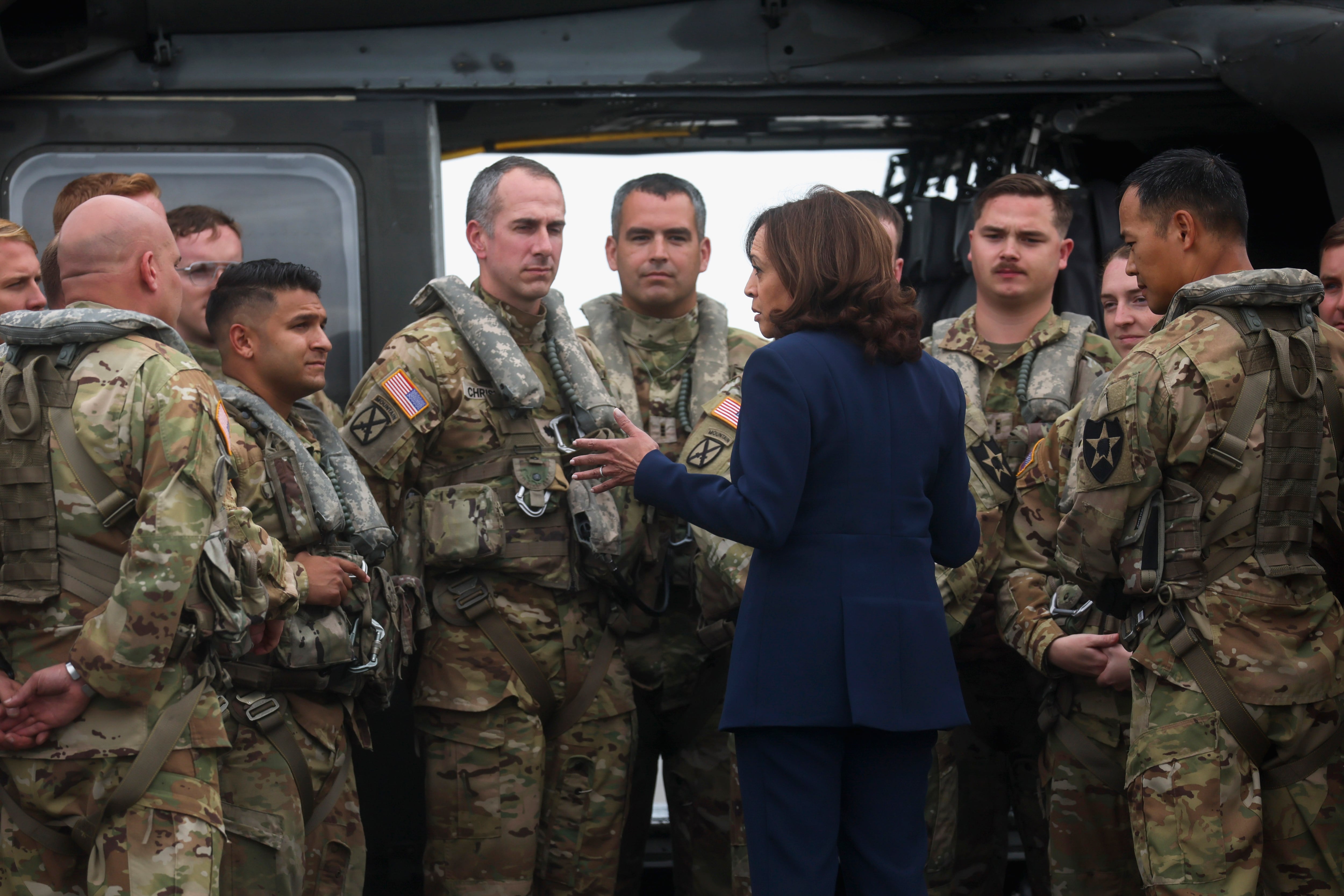The Marine Corps and Navy have ordered all Marines, sailors and federal civilian employees to undergo training about off-limits political activities this summer, ahead of the presidential election.
In an Aug. 12 message, Marine Corps staff director Lt. Gen. Gregg Olson ordered commanders to train units on the do’s and don’ts of political involvement by Sept. 15.
Navy Secretary Carlos Del Toro set the same deadline in a message issued July 17.
The orders come after the DOD’s Office of Inspector General reported in May that the Pentagon had failed to properly train and guide troops about partisan political activities before the 2024 campaign season.
RELATED
The IG recommended that service secretaries and the chief of the National Guard Bureau issue memos to outline what troops can’t do during a presidential election.
As of Tuesday, the Army and Air Force had resolved that recommendation, meaning they agreed to it but hadn’t yet completed it, said Mollie Halpern, a spokesperson for the DOD Inspector General’s Office. The National Guard had sent the memo, and the issue was still unresolved with the Navy. It was uncertain Wednesday whether the Navy’s July message to commanders would resolve the recommendation.
The IG’s report this spring warned the lack of guidance means service members may be prone to violating rules they don’t know exist.
“Failure to ensure compliance and awareness of the permissible and prohibited political conduct activities could result in service members unintentionally violating (policy) and the DOD, a nonpartisan institution, illustrating a partisan position to the public,” the IG report states.

A Pentagon policy adopted in 2008 encourages service members to vote, serve as election officials and sign political petitions as private citizens, rather than as representatives of the military. Troops shouldn’t participate in those activities while wearing their military uniforms, the rules stipulate.
The same policy spells out the list of prohibited activities, or “must nots.”
The list of off-limits actions include: fundraising for political candidates, participating in letter-writing campaigns, soliciting votes for a political party or candidate, attending political events as official military representatives and displaying large political signs, banners or posters on their private vehicles, among others.
The complex policy also says, broadly, that “any activity that can be reasonably viewed as directly or indirectly associating the DOD with partisan political activity” should be avoided.
In his message, Olson said Marines and sailors should ask legal staff before engaging in political activities they have questions about.
Deputy Secretary of Defense Kathleen Hicks sent a memo February 15 to senior Pentagon leaders and DOD field activity directors reminding them to stay apolitical in their official duties. Attached was a “quick guide” on what service members could and couldn’t do according to DOD rules.
“Maintaining the hard-earned trust and confidence of the American people requires us to avoid any action that could imply endorsement of a political party, political candidate or campaign by any element of the department,” Hicks wrote.
The IG determined the memo lacked comprehensiveness and failed to reach all service members.
The Air Force sent guidance to airmen and Space Force guardians in April, outlining what political activities they could do, both in uniform and in a personal capacity.
“As individuals, we do not have to be politically neutral, but the Air Force and Space Force do,” the guidance states. “These rules help to ensure the DOD does not influence or appear to be partisan in our nation’s electoral process.”
In its May report, the IG’s office recommended that the Under Secretary of Defense for Personnel and Readiness update the 2008 policy on political activities to require all of the services to train troops every year there’s a presidential election.
As of Tuesday, the DOD had agreed to the change but had not yet amended the policy, Halpern said.
Ashish S. Vazirani, the acting Under Secretary of Defense for Personnel and Readiness, said the Pentagon would implement the training requirements by December 2027, just before the next presidential election year.
This story was produced in partnership with Military Veterans in Journalism. Please send tips to [email protected].
Nikki Wentling covers disinformation and extremism for Military Times. She’s reported on veterans and military communities for eight years and has also covered technology, politics, health care and crime. Her work has earned multiple honors from the National Coalition for Homeless Veterans, the Arkansas Associated Press Managing Editors and others.
Read the full article here
